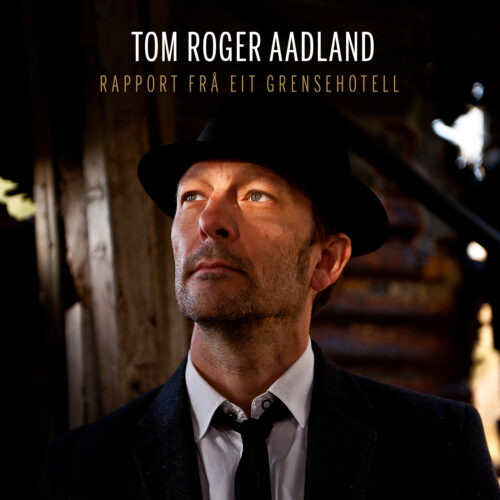Songs with a longing to them, and a little electricity, and a fine poetic tone
In the closing of this album, Tom Roger Aadland makes a case for going home. Home to his father’s people, away from the cold city where people are just too occupied with finding a back to drive the dagger in. The main character of the song has been out in life, has had some wounds and scars, has felt the longing burning in his chest. Time has come to seek reconvalescence with his relatives. One may not call this song very cheerful, but I might call it catchy. There, I guess I did. Catchy in a folk rock mode I feel gets to me, with a sonic wealth of details in an intuitive and airy creation, where tones from a Hammond organ eventually come rolling in, lifting the song all the way home.
I want to go home to my father’s people
Around the bend and then some more
Going home to my father’s people
Where the river runs so still
And this in the end of an album where there’s much talk about loneliness and taking leave. Loneliness like in Einsam utan deg, a blues where an electric guitar or two touch Ribot/Waits land and the singer goes straight to the bottom with the black painted mantra “plainly, plainly, I’m doing bad”. Taking leave like in Oppløyst og Medtatt, a dark melodic thing where the contrasts have got a grip, doubt is strong, and the art of not caring seems to be not the easiest thing in the world to handle. In one of several slightly confused statements the main character declares: “I’m grateful and lonely, I’m free and behind bars”.
Tom Roger Aadland does not lower the demands on quality here on his fifth album. Certainly not on the quality on the lyrics, but neither on the quality in the song as a whole. Together with a fresh team of brothers in arms he creates a séance that definitely gives off a glowing sensation. Electricity is more present than on previous albums, and something sonically unclean is burning underneath. Whether I should title him folk singer or rock poet, or something else in that vein, I haven’t decided. And I’m not going to decide. First and foremost he is a creator of songs, pure conventional songs, good songs, where a poetic vein is a predominant factor.
I awoke this morning
And what I put on
Was perfect for
A man with no hope
A report from a border hotel, there. A place where there is a room and a bed, but which makes for no place to stay. A place where loneliness has checked in, but it won’t settle there, and perhaps it’s not there all alone either. Yes perhaps there is hope in spite of it all. For when this man is lying there, longing for “the warmth of a non-existing body”, it’s a feeling that’s portrayed, a need, not a full life. The road onwards doesn’t necessarily go past another border hotel, sometimes it’s liberating too.
It’s the song of the earth you are hearing
I know now, you will never be mine
Sometimes it’s played to deaf ears
Sometimes it sets the one who listens free
A border hotel might also have another dimension. A more concrete one. In the title song it as a cold place in the middle of a war zone. Peopled by diplomats, “the God for revenge and hatred” and scavengers. But also by those who long, including the war correspondent himself. A further state of war, although not in the literal sense, might be found in the song Alle (Everybody). Where there is expressed dedicated admiration and deep contempt for one and the same person, from “everybody, absolutely everybody”. In a tone that might let the thoughts drift in the direction of both dictators and Casanova’s but also people more troubled by their conscience.
Some have a calling
Some have a street or a shed
Some, they have the songs
That they wrote in their own blood
I woke early this morning
And I was cold.
Autumn is coming.
The song is called Haust (Autumn), and is a country song, one of those simple ones that does not try to materialise into something bigger. And thus perhaps leaves a stronger trail than most songs, with weaving organ sounds and a melody to lean to. Elsewhere on the album there is beautiful, wistful singing about the one he wants “straight to my door, like you did before, when the sky was blue”. In Vel Av Garde (Well Off) it is tenderly suggested that leaving is not necessarily synonymous with going away. And in Hud mot Hud (Skin against Skin) there is reminiscence of past intimacy among a stack of books. When I think about it (and not for long) I could find a kind word to say about all the songs here. It’s that kind of album.
, Popkroken, 10. mars 2015
